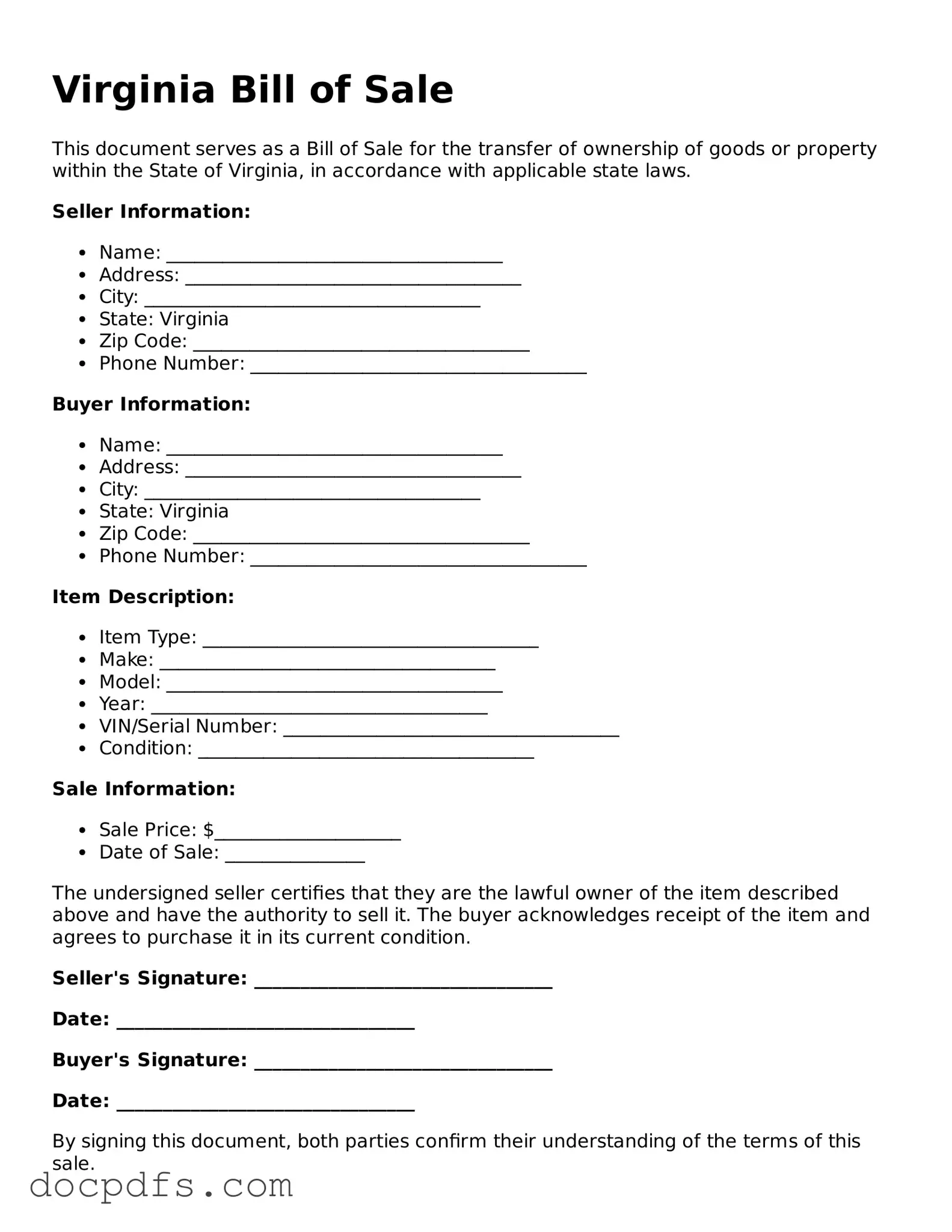What is a Virginia Bill of Sale?
A Virginia Bill of Sale is a legal document that records the transfer of ownership of personal property from one party to another. This form is particularly important for transactions involving vehicles, boats, or other significant assets. It serves as proof that the seller has transferred ownership to the buyer, protecting both parties in the transaction.
When do I need a Bill of Sale in Virginia?
You typically need a Bill of Sale in Virginia when you are buying or selling personal property, especially vehicles, trailers, or boats. It is also advisable to use one for valuable items like jewelry or artwork. While not always legally required, having a Bill of Sale can help clarify the terms of the sale and provide a record for both parties.
A comprehensive Bill of Sale should include the following details:
-
The full names and addresses of both the buyer and the seller
-
A description of the item being sold, including make, model, year, and VIN (for vehicles)
-
The purchase price
-
The date of the sale
-
Any warranties or guarantees, if applicable
Including all of this information helps ensure that both parties understand the terms of the sale and protects them in case of disputes.
Is a Bill of Sale required to register a vehicle in Virginia?
Yes, a Bill of Sale is generally required when registering a vehicle in Virginia. It acts as proof of ownership and is necessary for the Department of Motor Vehicles (DMV) to process the registration. Be sure to keep a copy for your records, as you may need it for future reference.
You can create your own Bill of Sale in Virginia, as long as it contains all the necessary information. However, using a standardized form can simplify the process and ensure that you don’t miss any crucial details. Many online resources provide templates that you can customize to fit your needs.
Do I need to have the Bill of Sale notarized?
In Virginia, notarization is not typically required for a Bill of Sale, but it can add an extra layer of security and authenticity to the document. If you choose to have it notarized, both parties should be present when signing the document. This can be particularly helpful in case of any future disputes.
What should I do with the Bill of Sale after the transaction?
After the transaction is complete, both the buyer and the seller should keep a copy of the Bill of Sale for their records. This document may be needed for tax purposes, future sales, or in case of disputes. It’s wise to store it in a safe place where it can be easily accessed when needed.

